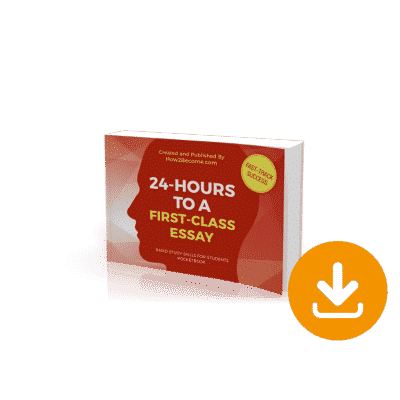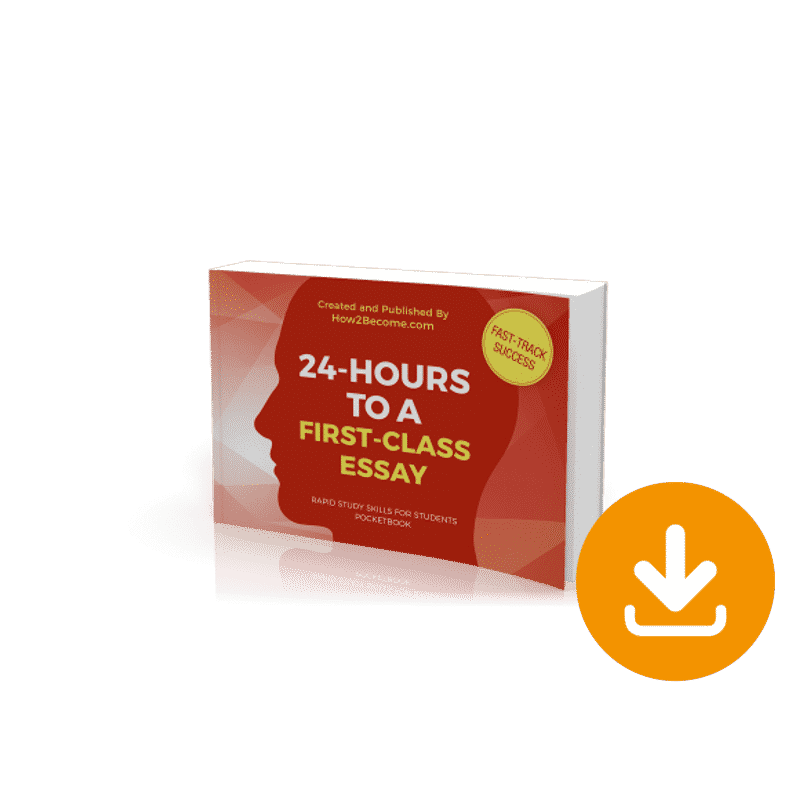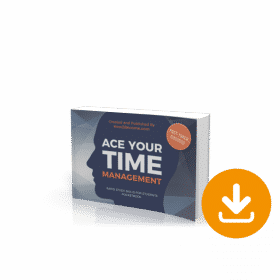24-HOURS TO A FIRST-CLASS ESSAY – ACE YOUR NEXT ESSAY
At university, it can be easy for deadlines to sneak up on you. Between studying, living your life, and any other responsibilities you might have as a student, you might just not have the time to devote to a long essay. Under optimal circumstances, we would recommend that you spend at least a week planning, researching, and writing your essay.
If you’re reading this, then you probably don’t have a week! If you only have 24 hours, you’ll need as much help as you can get. Read on to find some expert tips on how to complete a first-class essay in 24 hours!
HOW TO GET A FIRST-CLASS ESSAY – WHY SHOULD I BOTHER?
At school, coursework might have only made up a small proportion of your overall mark. In a lot of cases, controlled assessments contribute to around 20% of one’s grade in a subject. For some people, this isn’t enough to warrant coursework receiving their full attention. Instead, they direct their efforts towards preparation for exams. We absolutely do not recommend adopting this same approach at university, for a number of reasons.
Firstly, assignments throughout the year often contribute to significant portions of modules. In essay-based subjects such as History, English Literature, or Theology, it isn’t unusual for coursework to contribute up to half of a module’s overall mark – even higher in some cases. This means that you cannot afford to slack when it comes to the assignments that you’ll be given throughout the year. As mentioned in our chapter on planning your degree, information on how much each piece of coursework is worth should be made clear on department websites.

SAMPLE TIPS – CONDUCTING RESEARCH ALONE – 24 HOURS TO A FIRST-CLASS ESSAY
Conducting independent research is useful for any subject, but vital for those studying degrees with fewer contact hours. This is because these students will have a lot more work to do on their own time. If you’re studying one of the Humanities or Social Sciences, then you’ll have to do a lot of reading on your own, usually on a daily basis. This could be set reading for a seminar or lecture, or just general reading to get you ahead in your next piece of coursework. Whatever the case, you’ll need to be able to work on your own in order to stay ahead of the game and improve your chances of getting a first. When it comes to almost any module, you’ll probably be given a list of sources which will be relevant to you. This tends to consist of the following:
- Core sources. These are usually text books or primary reading, with the suggestion that you should purchase these for yourself since you’ll be referring to them often.
- Further core texts. Typically, these are available in the university library, or the lecturer will be printing handouts of specific chapters.
- Seminar sources. These are usually set by your seminar leader, but can also be set by lecturers too. In a lot of cases, these will be made readily available via printed handouts or digital copies, unless they are already easily accessible online.
- Further reading. These sources are usually reserved for students writing about a specific topic within the module. When it comes to completing assignments at the end of term, you’ll want to find the further reading that’s suitable for your module. If you aren’t writing your coursework on this topic, you probably won’t have to worry about this until the end of the year when it comes to exam revision.
SAMPLE TIPS – TURNING RESEARCH INTO ESSAY GOLD
Once you’ve collected all of your research notes, you need to turn it into a killer essay. Here are a few ways in which you can do this.
Find a ‘Back-and-Forth’ Narrative and Join in
Sometimes, you might find that the essay topic you’re writing about is dominated by two or three major theories, ideologies, or perspectives. You might find that, in your research, there’s a ‘back-and-forth’ between these sides, resulting in a conversation that you can follow from essay to essay, book to book, and so on. In some cases, journals deliberately follow up one essay with another which directly opposes it, creating a discourse that you can easily get involved in. As we’ve previously discussed, you can’t exactly take both sides in an essay. Rather, you need to pick a side and defend it or attack it. The best way to do this is to read through the most relevant parts of this ‘back-and-forth’ and find an area that you can latch on to and either attack or defend. This brings us to our next point.
Use Your Research to Focus Your Essay
As mentioned in a previous chapter, having a laser-focused essay is the key to getting a first both in an individual piece of coursework and overall in your degree. The examiner would much rather see you focus heavily on a narrow area of discussion than present a shallow analysis of a broad range of topics. In other words, depth is more important than breadth in most essays. With this in mind, it’s important to think of ways in which you can use your research to make your essay focused on a very specific area. The best way to do this is to read through a text, and choose a single argument for or against an idea that is directly relevant to your essay title, and then focus your entire essay on that. It requires discipline, but if you can write a two-thousand word or three-thousand word essay on this single area, your essay is going to have a lot more depth than one which broadly strokes over the entire topic.
SAMPLE TIPS – FIRST-CLASS ESSAY PLAN
In many ways, the planning stage of the assignment-writing process is the most important part of submitting an excellent piece of work. If you create a proper plan, then the bulk of the work you need to do will already be finished when you get to the main writing stage.
Treat the planning stage as though you were writing up the actual piece of work, but in a more condensed format. Try to create every point of your argument, with evidence and explanations, and put it inside your plan.
On top of this, divide these into paragraphs and sections, and make a note of ways in which each of them relates to the question and to the previous section. By doing this, you should create a plan that smoothly goes through every major point of your work. An essay or any other kind of written assignment which flows properly will have a much better chance of scoring high marks than one that feels clunky or disjointed. As we’ve recommended in the flowchart above, you should try to create two plans for your coursework. The first is a rough plan that outlines the general direction of your argument, as well as some basic points. Once you’ve done all of your research, you can adapt this plan to create a more fleshed-out one.
FREE BONUS
24 HOUR ESSAY PLANNER

By buying this book, you’ll receive a FREE 24 Hour Essay Planner, giving you the resource you need to organise the 24 hours between starting and finishing your essay!

✓ 30-Day Money-back Guarantee
Did you know? All orders with How2Become are protected by our 30-day money-back guarantee. What ever the reason…or no reason at all…you can have your money back if this resource isn’t right for you (see our terms for full details).











